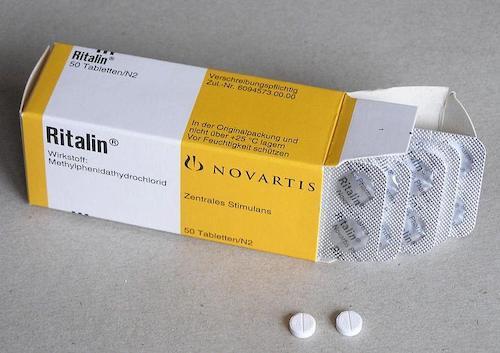
Sunday morning and a hung-over Yangon expat spoke to me on the phone. He insisted his name was “Raoul Duke” for this article.
“The irony of Myanmar is it’s one of the biggest exporters of the two hardest drugs in the world—heroin and meth—and yet for most expats the most accessible drug is Ritalin,” said Raoul Duke.
If the ‘real’ suitcase-toting Raoul Duke of Hunter S. Thompson’s Fear and Loathing in Las Vegas came here, I can imagine hearing his sigh from blocks away as, among its Ritalin-gobbling westerners, he reached for a bottle of adrenochrome.
Ritalin is a stimulant used to treat Attention Deficit Hyperactivity Disorder (ADHD), a neurobehavioral condition marked by inattention, hyperactivity and impulsivity. In my home country, the United States, the stronger Adderall has steadily replaced Ritalin as a prescribed and non-prescribed drug.
But in Yangon, the little white Ritalin pills are ubiquitous. Although no statistics are available on Ritalin’s prevalence in the expat community—or any drug, for that matter—most nights out reveal it as widely-used extra fuel, perhaps a means of enjoying a 900th visit to one of the usual haunts.
Of course, Myanmar’s drug problems run profoundly deeper than cliques of well-heeled expats washing down inattention treatment pills with their cocktails in rooftop bars.
Mired in conflict for decades, Shan state has expanded from heroin production to become a major global source of high purity crystal meth. But a local market has developed, too, with yaba (caffeine and methamphetamine pills) use surging throughout the country.
Also devastating is the heroin epidemic plaguing workers in the jade mines of Hpakant in Kachin state, along with a legislatively punitive approach towards users while the major drug producers walk free.
Yet popping strong drugs bought over the counter and typically masking any attached anxiety with alcohol comes with its own dangers.
Pharmacies’ lax prescription practices in Southeast Asia are widely known, causing addiction and health damage that has been documented in regional news outlets.
Few reports have been done on Myanmar’s prescription pill popping, but at least when it comes to its expat community, the drug of choice is clear.
“Ritalin is accessible, it’s basically legal, and feels about 20 percent as good as doing ecstasy so I’d rather just get my hands on that,” said another expat, who did not wish to be named.
In addition to nervousness, the drug can cause stomach pain, sleep problems, headaches, increased blood pressure, and other nasty side effects.
But that has not hindered its popularity; something about the drug has a distinctively Yangon flavour to it. In few other places would you find such a drug so commonly used across a social scene.
Some people explain it through most expats having a lack of access to harder drugs coupled with an open secret that certain pharmacies around Yangon will skirt regulations to sell prescription medications to just about any foreigner who has the cash.
This not only includes Ritalin, but other drugs such as Valium, Xanax, and Tramadol.
Even though Ritalin “isn’t great,” says Raoul Duke, “having the physical sensation of doing something is half the fun,” which, he explains, is why some people snort it.
Medical websites say snorting Ritalin increases both the risk of overdose and the drug’s addictive potential, although users interviewed for this article said swallowing the drug is actually more efficient, but, according to one, “less satisfying.”
Buying from a pharmacy makes it “impossible to be ripped off and sold lower quality stuff,” added Raoul Duke.
But prices can be steep. One hundred 10-milligram tablets on prescription cost from US$106 (160,000 kyats) in the US—a country not known for its affordable medical care.
A recent visit to a Yangon pharmacy showed just 15 of the same tablets cost $60 (90,000 kyats).
The price hike may be explained through import costs accentuated by the deprecation of the kyat against the dollar, or, as two interviewees told me, growing government scrutiny of pharmacies.
Selling Ritalin or similar drugs without a prescription carries risk of a large fine or having a license revoked, so the consumer pays premium to cover that risk.
For some Myanmar pharmacy regulars, a change is in the air. The once open, friendly transaction now feels shady and people sense the days of heading to a pharmacy before or even during a night out may soon be over.
A number of illicit drugs are making their way into the city, such as ecstasy, psychedelic mushrooms, LSD and cocaine, according to Raoul Duke, and, although difficult to access, are slowly taking the place of Ritalin.
Another long-term expat tepidly agreed with this assessment, saying she has spotted groups of people with “coke and the occasional molly [ecstasy].”
“But the preconceived notion that Yangon is some underground party haven with lots of party favours is getting further from the truth,” she said. “Dealers are getting arrested all over. With so many crackdowns, all the candy is becoming far more scarce.”
*This article has been updated with quotes from an additional interviewee.


